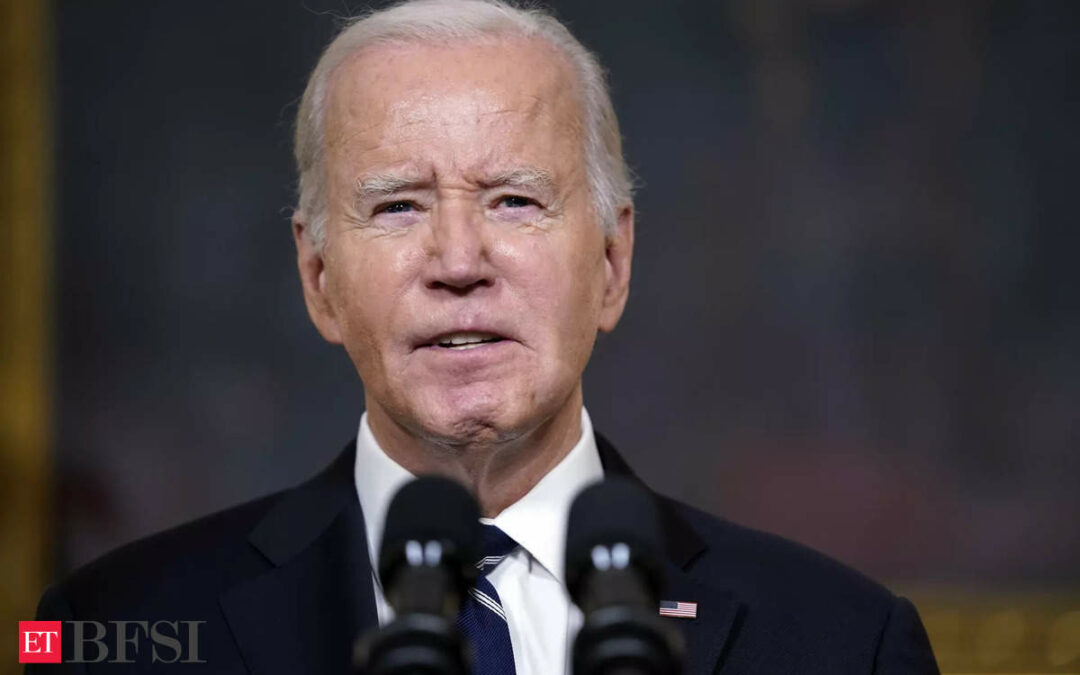WASHINGTON: Biden administration officials are leaving open the possibility of re-freezing $6 billion in Iranian oil money that was released as part of a prisoner swap amid growing bipartisan criticism after Iran-backed Hamas militants attacked Israel.
The $6 billion that was to be used for humanitarian purposes has become a touchstone for criticism of President Joe Biden’s approach to Iran and a focus of inquiries into what role Iran may have played in last weekend’s attack.
A US official said Wednesday that intelligence agencies still have no evidence indicating that Iran directed the onslaught that killed at least 1,200 Israelis and left others, including Americans, held hostage or that Iran knew details of the Hamas plans in advance. But the agencies believe Iran knew Hamas was plotting some action against Israel, according to the official, who discussed the sensitive intelligence on condition of anonymity.
The disputed $6 billion was to be released as part of the deal last month that freed five Americans held by the Islamic Republic. But Republicans and some Democrats in Congress have demanded that the freeze be reimposed, and the administration is weighing that option.
Treasury Secretary Janet Yellen said Wednesday that the administration wasn’t ruling out new sanctions against Iran, adding that she “wouldn’t take anything off the table in terms of future possible actions.”
The $6 billion could be “re-frozen” at any time, John Kirby, spokesman for the National Security Council, said Tuesday on MSNBC. “None of it has been allocated. None of it has been spent. So it’s all still sitting in a Qatari bank, and that is an option that’s available to us.”
The issue of how to handle the $6 billion highlights the difficult balancing act the administration faces as the attack by Hamas has scrambled its policy across the Mideast. Biden has tried to keep tensions with Iran from escalating, with tentative steps to slow its nuclear work and negotiate the release of the American prisoners.
But that strategy is again in doubt, and any move to seize the Iranian funds again would fuel frictions with Tehran – and deal a victory to administration critics who argue the agreement was a mistake in the first place.
“Biden’s attempt at a quick getaway from the Middle East had one fatal flaw: It wildly misperceived the incentives for Iran, the most disruptive actor on the stage,” Suzanne Maloney, vice president and director of the foreign policy program at the Brookings Institution, said in a commentary for Foreign Affairs magazine. “It was never plausible that informal understandings and a dribble of sanctions relief would be sufficient to pacify the Islamic Republic and its proxies.”
The $6 billion freed up in the prisoner swap has become a prime focus of criticism in Congress.
Cosponsoring a measure to freeze the funds, Senate Minority Leader Mitch McConnell said in a statement Wednesday that “the path of resources, training and lethal weapons from Tehran to terrorists throughout the Middle East is crystal clear.” Hamas is designated a terrorist organization by the US and the European Union.
The money also has emerged as a campaign issue for Democratic incumbents running in swing states or states that voted for former President Donald Trump in the 2020 election. Four candidates — including the chairman of the Senate Banking Committee — have said they support keeping the assets frozen until Iran’s role in the attacks on Israel can be determined.
“Congress’s priority right now must be providing robust military, economic, and humanitarian aid to support Israel as they defend themselves against Hamas’s horrific terrorist attack,” Democratic Senator Sherrod Brown of Ohio said in a statement. “As we work to hold anyone who supports terrorism accountable, the administration must freeze the $6 billion in Iranian assets.”
Democratic Senator Bob Casey of Pennsylvania criticized Republicans for “intentionally misleading the American people” about the $6 billion, saying “none of the sanctions funds have been transferred to Iran.”
But he, too, said “these funds should remain frozen until we can determine whether Iran played a role in the attack and what the appropriate US response should be.”










